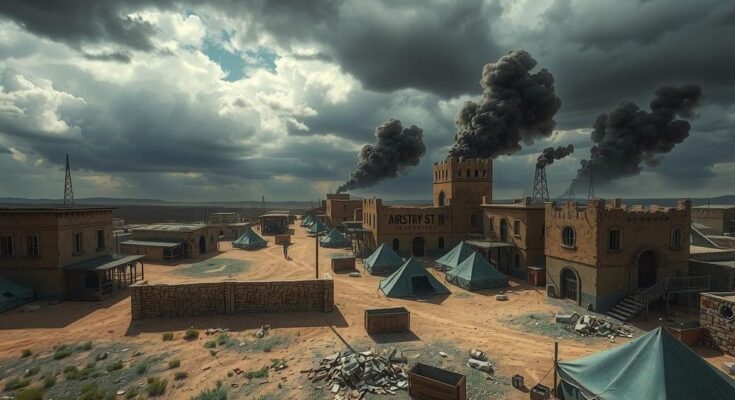The M23 rebels in eastern Congo have captured the strategic town of Walikale, rejecting a ceasefire call from the Congolese and Rwandan leaders. The situation reflects a larger conflict rooted in history and resource competition, with M23 asserting the need for direct talks with Kinshasa to resolve issues concerning Tutsis and national governance.
On Thursday, the leader of the Rwandan-backed M23 rebels in eastern Congo announced that their forces disregarded the ceasefire proposals from Kinshasa and Kigali, opting instead to advance into Congolese territory by seizing the crucial town of Walikale. This significant capture represents the farthest west the rebels have progressed, following armed confrontations with the Congolese army and allied militias. Walikale, home to approximately 15,000 residents, is located in a mineral-rich region, crucially linking four eastern provinces of Congo and positioning the rebels within 400 kilometers of Kisangani, the country’s fourth-largest city.
Witnesses confirmed that M23 forces have established complete control over Walikale, while the Congolese army did not respond to requests for comment. Local civil society activist Fiston Misona reported visible rebel presence in the town center and indicated multiple injuries resulting from the conflict. Despite a recent call for an immediate ceasefire by Congolese President Felix Tshisekedi and Rwandan President Paul Kagame, the M23 leader, Corneille Nangaa, asserted that such appeals do not impact their military operations, emphasizing that their struggle is a Congolese issue rather than one influenced by Rwanda.
The longstanding conflict, which has roots in the aftermath of Rwanda’s 1994 genocide and disputes over valuable minerals, has escalated, marking eastern Congo’s worst situation since the extensive war from 1998 to 2003. M23 has captured major cities like Goma and Bukavu since January, consistently overpowering Congolese forces in encounters. There are widespread allegations of Rwandan military support for M23, which Rwanda denies, claiming self-defense against Congolese forces and genocide-affiliated militias.
The anticipated direct talks between Congolese authorities and M23 in Angola were disrupted by M23’s withdrawal due to European Union sanctions affecting its leadership. Despite this setback, Nangaa reiterated the necessity of direct negotiations with Kinshasa, emphasizing that dialogue is essential to resolve ongoing tensions. He expressed their commitment to finding a peaceful solution and addressing grievances regarding the treatment of Tutsis in Congo and governance issues.
In conclusion, the recent capture of Walikale by M23 rebels highlights the ongoing conflict in eastern Congo, where a ceasefire proposal by Congolese and Rwandan leaders has been dismissed by the rebels. The situation reflects deep-rooted issues linked to historical conflicts and resource competition. The refusal to engage in direct talks suggests a strong confidence among the rebels, complicating potential pathways to peace amidst escalating violence. Direct negotiations have been reiterated as necessary to address the underlying causes of the conflict and seek resolutions for minority rights and governance.
Original Source: www.usnews.com




